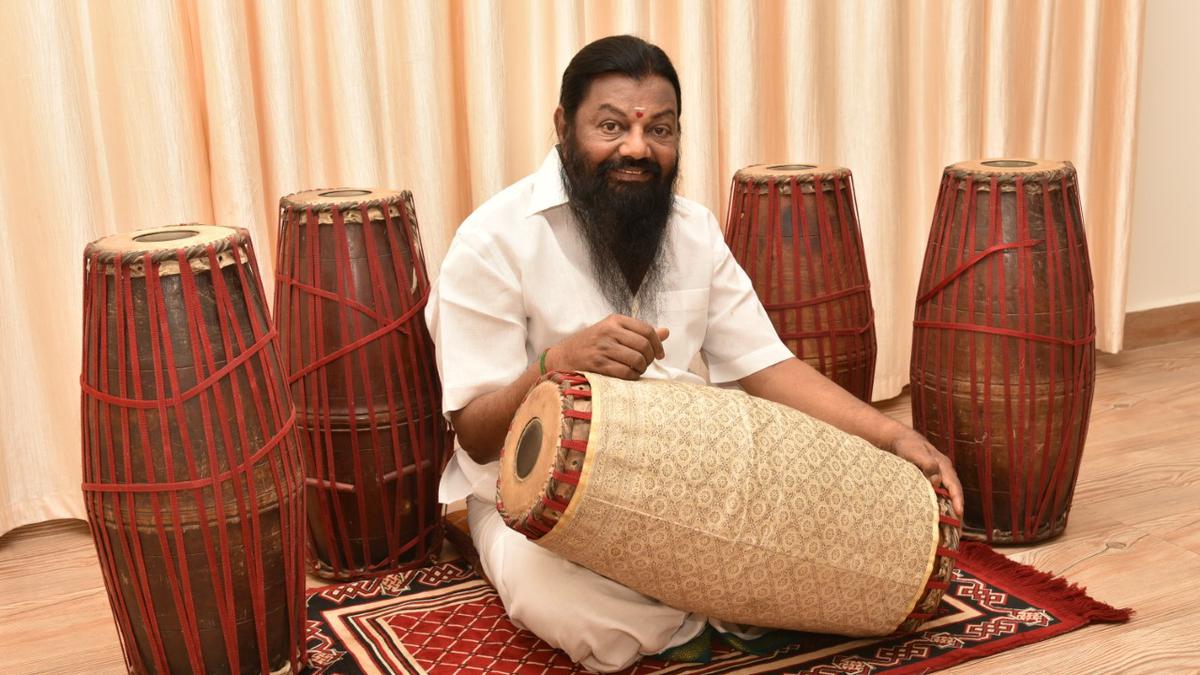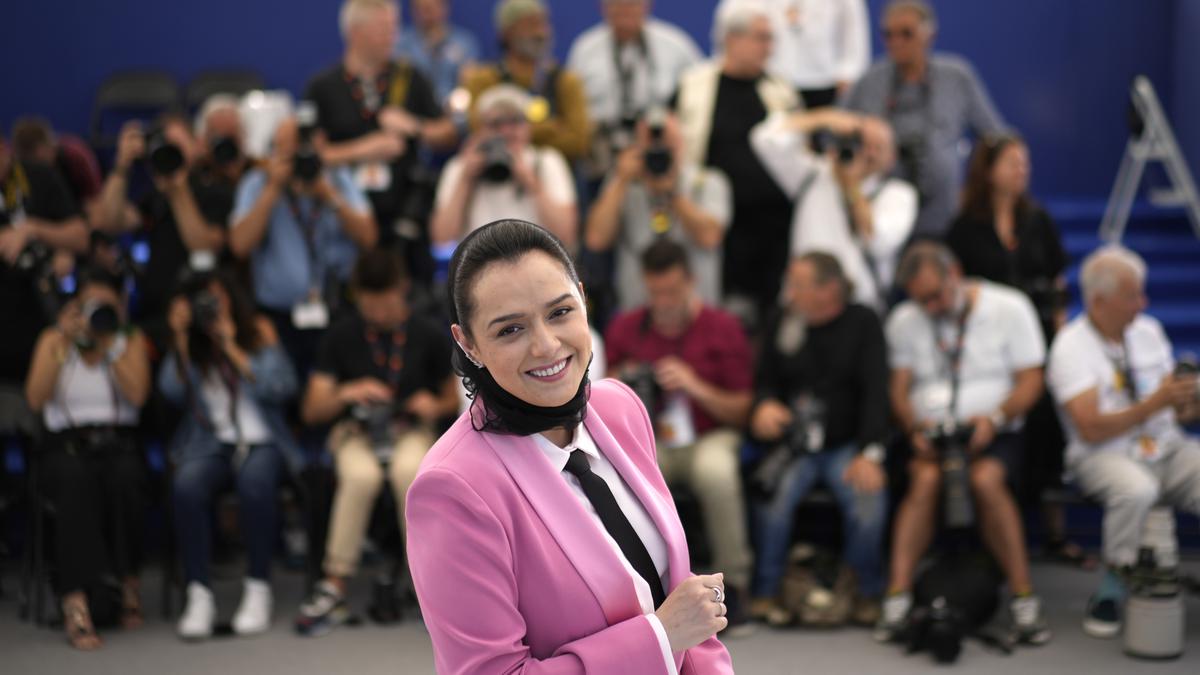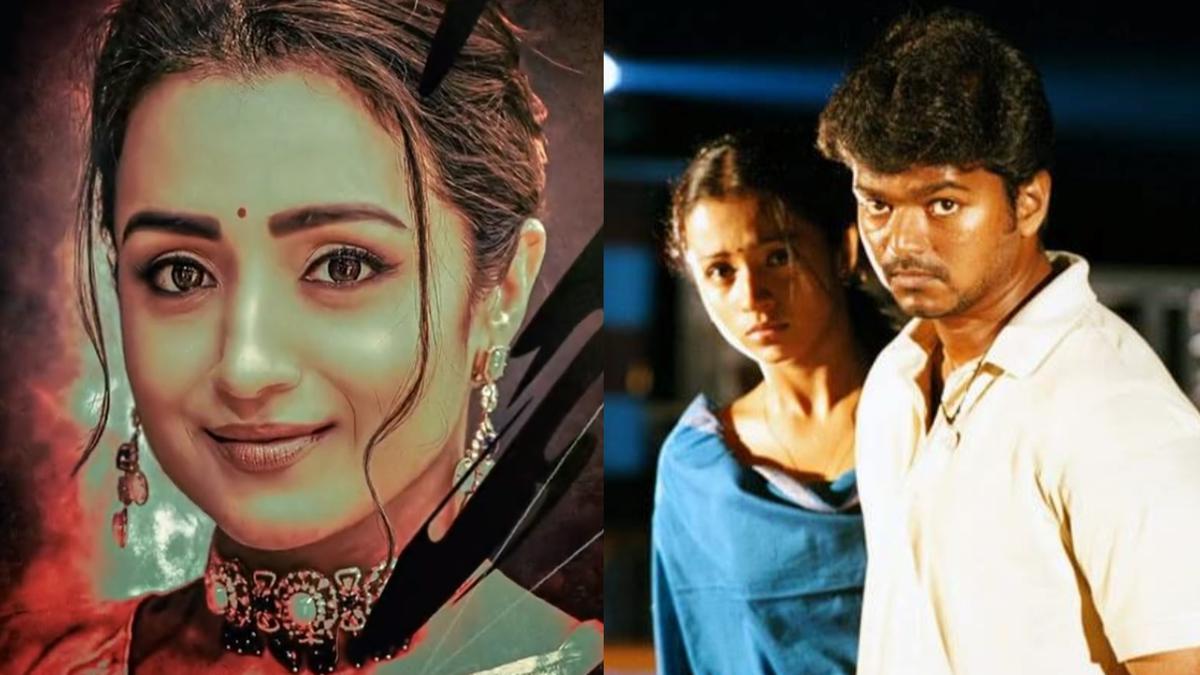V.P. Dhananjayan, Natyacharya
Vidwan Karaikudi Mani will live long through his immaculately trained disciples from across the globe. He contribution to popularise Carnatic percussion is immense. He interacted and collaborated with western drummers. He established branches of his Sruthi Laya abroad, and groomed several mridangists. He has also contributed to the naatya repertoire by composing intricate jathis that are performed by the Hyderabad-based Bharatanatyam dancer Rajeswari Sainath, who is also his niece. Unlike some vidwans, he allowed his disciples to play for naatyam. Some of them were referred by him to be trained at Bharatakalanjali. These competent disciples have been taking forward Mani’s bani.
Sai Shravanam; Music producer and musician
Nothing else but only excellence mattered to him. Having worked with Mani sir for almost 20 years I realised it was only perfection that could out a smile on his face. He would roar like a lion if the music didn’t shape up the way he intended it to be. He worked tirelessly to achieve it. I have never seen him waste a moment. To colloborate with him one had to be honest towards the art. Once he was convinced of your genuiness, he would go all out to shower his affection and blessings. Even when he was in the hospital, I have seen him utter rhythmic syllables under his breath. Though I am not his student, his generosity in allowing me to perform besides him is the greatest gift.
Lalgudi G.J.R. Krishnan, senior violinist
The bond between Karaikudi Mani and the Lalgudi family spans two generations, beginning with my father. I used to call him early morning on Deepavali every year. He spoke on the occasion of my receiving the Sangeetha Choodamani award from Sri Krishna Gana Sabha in 1998, as well as when my guru and father Lalgudi Jayaraman received the Lifetime Achievement award from the Music Academy in 2008. I have had the honour of sharing the stage with him, both alongside my guru as well as when playing solo, for over 40 years. Many of my memorable performances including the New Year concerts at the Mylapore Fine Arts Club featured him. It was always enriching to perform with Mani sir. He will be remembered for a style of his own, which was characterised by clarity, azhutham (even at higher speeds), and rhythmic patterns in different nadais. He inspired percussionists from across all banis. He was a person of integrity and deep commitment to his rasikas.
Lalgudi Vijayalakshmi, senior violinist
His passing is a great loss to the world of music. I have had the opportunity to watch him perform at several concerts of my father and guru Lalgudi Jayaraman and brother Krishnan. I have also had the privilege of sharing the stage with him at trio concerts in London and Australia. His accompaniment was unintrusive, and in a manner that enhanced the experience for artistes and rasikas alike. His kalapramana shuddham was comparable to Madurai Mani Iyer’s shruthi shuddham. One of my cherished memories include cooking with Mani sir during a concert trip to London with my guru and brother. I then learnt the secret behind his delicious preparations – an extra pinch of asafoetida. A man of few words, he would speak to the point and in a witty manner.
K. Gayatri, vocalist
I have never interacted with him personally. Yet, like any other youngster, have always been in awe of his mridangam expertise and would make it a point to attend concerts in which he was performing. In July 2022, when Sai Shravanam, a childhood friend of mine, told me about a project initiated by Guru Karaikudi Mani, I was thrilled. Knowing my proficiency in Sanskrit, Sai had suggested my name to the mridangam exponent, who wanted me to be part of ‘Raghuveera Gadyam’. It was a rare opportunity and a great blessing to sing the same track that he had lent voice to. I was looking forward to working on more such projects with him. His demise is a great loss to musicians like me, who are eager to expand their horizons under the guidance of masters like him.
‘Ghatam’ Suresh
In a more than six-decade-long musical career, Guru Karaikudi Mani with his robust performances, tenacious stage presence, pure soulful strokes and impeccable arithmetical concepts put mridangam on the global centre stage. His insistence on high standards and quality playing helped his co-artistes grow musically, while his mridangam support enhanced the vocal concerts he was part of. Many a time, a tani led by Mani sir was stretched longer since rasikas would unusually wait for this section in the concert. His pairing with Vikku Vinayakaram (my second guru) on the ghatam or G. Harishankar on the kanjira created waves in the music circles those days.
Innovative concepts such as speed progressions, extended pauses to create suspense, swift sharing of phrases with co-artistes, instantly alternating with his own konnakol during solos, logical improvisation, energetic double-phrased grooves for songs, and uniquely formed end notes would create magic spells in every concert. Through my four-decade association with him, I realised a co-percussionist cannot take Mani sir’s compositions for granted and treat them with a “let’s see on stage” attitude. It needed a certain level of maturity to handle his ideas. I had been a witness to many of his creative works when they were taking shape. He would sometimes spend hours and days to create a rhythmic structure with a single phrase or a series of phrases.
During the mid-seventies, the other boys and I training at the Jaya Ganesh Tala Vadya Vidyalaya in Triplicane would be awe-struck by the charismatic Mani sir, whenever he visited his guru Thethakudi R. Harihara Sarma (father of ghatam maestro Vikku Vinayakaram).
In 1993, a major accident kept him away from his dear mridangam for more than six months, rendering an important tour of Germany nearly impossible. Mani sir told me and Sundaresan (his co-artistes along with G. Harishankar), ‘This is your debut tour with me and if I cancel, your disappointment would be more’. His will power surprised doctors as he got back to form rapidly and with added conviction.
Whether arranging his Sruthi Laya compositions for the Australian Art Orchestra, whose musicians cherish his association and music for nearly three decades now, or learning the harmonies of musicians from Japanese and Finnish Philharmonic society, or challenging a Djembe exponent in a Symphony or lending voice to Paul Simon’s pop album, Mani sir insisted on the choicest phrases and mix of instruments to highlight the aesthetics of Indian rhythm and melody.
Known for his culinary expertise, Mani sir looked after the comforts of his co-musicians in terms of food, stay and travel, particularly during our visits abroad. A devout, he tuned and popularised his spiritual guru Sri Suraajaananda’s compositions.
His demise is an irreplaceable loss to the music world. Personally, I have lost the presence of an inspiring legend.







